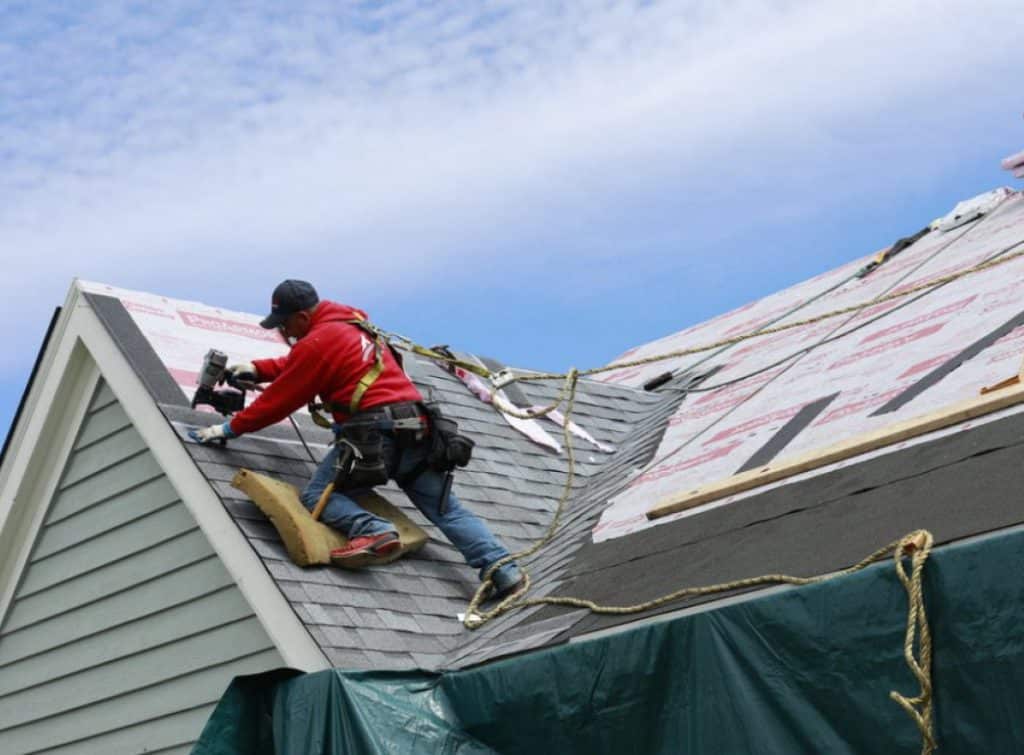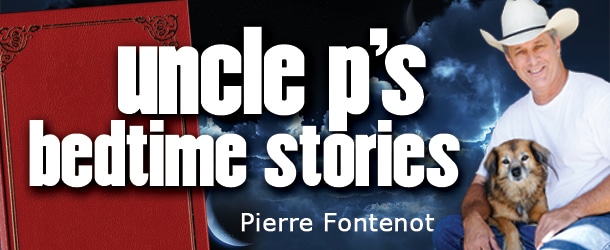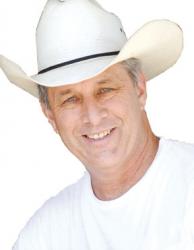“Pedro” was a year old when his family crossed the Rio Grande. Street schooled, his first teachers were Big Bird and Elmo, Bert and Ernie.
“I learned a lot of English watching Sesame Street.”
Pedro and I are having this conversation in the kitchen of a home with a blue tarp roof. Cat 4 hurricane wind has brought us together. Southwest Louisiana, a quarter of a state, whatever it used to be, it may be again, but right now, it’s the Land of Roofers.
Nothing is quite as in-your-face about the American labor force, as having an emergency, and seeing who the cavalry is…
_ _ _ _ _ _ _ _ _ _ _ _ _ _ _ _ _ _

Nothing is quite as in-your-face about the American labor force, as having an emergency, and seeing who the cavalry is…
Pedro arrives in Texas as a nino, (little boy). Whether his arrival was mojado (wet) or por las reglas (by the rules) was beyond his control and it is not for me to ask. He is now become this hombre, this grown man, who seems to know what he is talking about, sitting at the kitchen table like he belongs, discussing ridge vents, and 3 tab versus architectural shingles.
The writer in me can’t waste this moment talking only about decking and valleys, hip and gable. I have done a lot of business with Mexicans over the years. With no ethnic group do I feel more kinship with than Mexicans. That feeling comes not from me, the American, but me, the Cajun. We are mutual about everything from food (rice & spice based) to religion to how we think about family. But I feel special kinship in our views on hard work and how we deal with the hard licks of a hard life.
_ _ _ _ _ _ _ _ _ _ _ _ _ _ _ _ _ _ _ _ _ _ _ _
“I’ve got a green card,” he says. I didn’t ask his age, but I’m guessing late 30’s, maybe early 40’s. He’s got a hint of accent, but he’s plenty American to me.
“Your parents,” I ask, “how’s their English?”
“Better, but not too good.”
“What about your children?”
“My wife is mad at me, because I haven’t talked Spanish to my kid. He speaks a little, but backwards, English style.”
And that, we also have in common… In my family we went from French to English, to melt, to become “real” Americans. In his family, the same steps, the more you gain the new language, the more you lose the old one. In my family it only took three generations to lose our language. So it will be for his grandchildren.
His grandchildren will still have their tortillas and picante sauce, just as I have my gumbo and boudin. But when you lose the language, you can’t get that back. My grandparents had a local dialect, completely different phrases from Cajuns two towns away.
The American melting pot, we submit to it to fit in, and improve our options, but nobody foresaw the high cost, of melting away those identifiable traits that are part of our foundation.
Do I claim my Cajun-ness? Sure, but compared to my grandfather, I am about as Cajun as a Mardi Gras costume, more worn than lived…
_ _ _ _ _ _ _ _ _ _ _ _ _ _ _ _ _ _ _ _ _ _ _ _
I am eyewitness to the way we used to be. My childhood home was built with hand tools, real saws, real hammers, that required real arms and real muscles. Some of that exertion was my father and uncle, doing it the old way, man versus his limits, work hard, go home dragging.
The men that defined what a man was when I was a kid were white, like me. They had man faces, sun wrinkles, hat tans and calloused hands. I’ve been chasing that my whole life, wanting to measure up to the I-saw-it of my childhood. I don’t want to be stuck in the ole hard way, just to prove something to people who aren’t even alive, but I trust what I saw, because it works. If bad comes to worse, I don’t want to be some softie waving a white flag, overwhelmed with life struggles that my grandparents would think trifling.
Long after those old men are dead, I kept trying to measure to that, but I wasn’t measuring against white guys…
Because we had gotten too American…
So I measured against Mexicans. They were the closest thing to what I saw in my childhood. Start early, stay late. No complaining. Just get after it. Good weather, bad weather, fun, no fun, don’t matter, work, because that’s what a man does, he works.
Even in my fifties, sometimes, after a hard stretch, I’d say to myself, “I’m one white guy who can hold my own with a Mexican.”
I ain’t fifty anymore…
_ _ _ _ _ _ _ _ _ _ _ _ _ _ _ _ _ _ _ _ _ _ _ _
“Where’s home?” I ask him.
“Piedras Negras, across the river from Eagle Pass.” Again with the similarities: I’m a Cajun in a state where our capital is Baton Rouge, which means red stick, and he’s a Mexican, and Piedras Negras means black stones…
I steer the conversation to something measurable, money. “Somebody in Piedras Negras, how much are they making?”
“They make about $50 a week.” He knows where I’m going. “So they come here, they’re making $400, $500 a week.
“Everything is good,” he says. “They work, they send money back home to their family.”
A “but” is coming…
“But little by little they get Americanized. They want to drink a few beers. Get looking nice. Next thing you know, they’re driving a car, but not legal. Stupid stuff.”
“How long does it take?”
“Not long enough.”
_ _ _ _ _ _ _ _ _ _ _ _ _ _ _ _ _ _ _ _ _ _ _ _
With Hurricane Rita, the roofers were all Mexicans. Fifteen years later, now the Hondurans are here. Hungry like the Mexicans used to be, like the Cajuns used to be, like the Americans used to be…
That’s the way it goes. America is good to us, but sometimes good is not good for us.
_ _ _ _ _ _ _ _ _ _ _ _ _ _ _ _ _ _ _ _ _ _ _ _
This edition of Uncle P’s Bedtime Stories is dedicated to our inner toughness. Whatever our ease in life, one thing we cannot escape, is death and mourning. In that test, we are tested as any generation before us…
To order copies of Uncle P’s Bedtime Stories, Volume I, or the latest book, Bread Upon The Waters, Volume II, email eightyoneantiqes@gmail.
















Comments are closed.